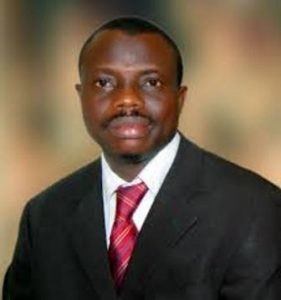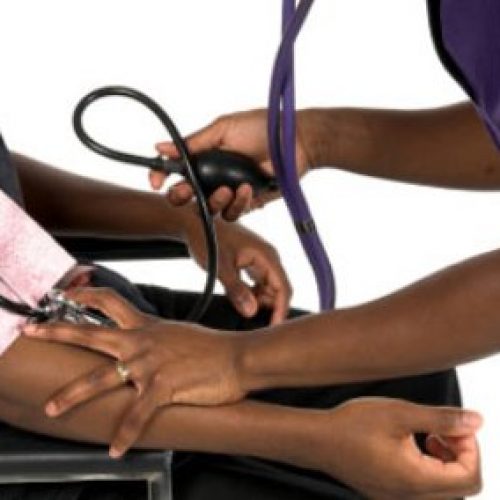Midwives decry poor infrastructures in Nigerian hospitals
-
Say hospitals need more skilled birth attendants
-
Now, Nigeria has more male midwives
The National Association of Nigerian Nurses and Midwives (NANNM) Friday, denounced the poor state of infrastructures in the nation’ hospitals saying this remains a great challenge to delivery of quality services by health professionals.
This is even as the group decried shortage of skilled midwives across hospitals in the country.
The group also appealed to tiers of government in the country to disengage unskilled midwives used by their predecessors, saying, such persons have not helped to achieve desired improvement in the health of mothers and children in the country.
National President, NANNM, Abdulrafiu Adeniji, said at a briefing to commemorate this year International Day of the Midwives in Abuja that midwives in the country were particularly concerned about the decay and lack of infrastructures in health facilities, which he said make it difficult for health workers to perform effectively.
“This has put Nigerian midwives at a crossroads and the people they want to serve,” he said.
He argued that there were many things midwives were expected to do that they could not do as a result of poor facilities. He therefore appealed to government and proprietors of private health facilities to ensure health facilities across the country are in good shape, with functional facilities.
Meanwhile, Adeniji revealed that midwives in the country were having more trained and licensed males by the day, following years of myths he said had refrained male folks from studying midwifery in schools.
“I am happy to inform you that there has been increase in the number of male counterparts that are being certified to carry out midwifery services…In as much male gynaecologists are performing, and they are performing excellently well, male midwives are equally up to the task,” Adeniji, a nurse, said.
First National Vice President, NANNM, also a coordinator and chairperson of midwifery sector of NANNM, Mrs Margaret Akinsola, called for more engagement of skilled midwives across hospitals in the country.
Akinsola said the roles of a nurse and midwives are interwoven. She explained that hardly would one find a nurse that is not a midwife.
“At least 97 percent of nurses in Nigeria today are nurses and midwives,” she said.
She informed that this year commemoration “clearly demonstrates the continuous significance of the roles played by midwives in areas of maternal and child health, especially the long term goal of ensuring a healthy generation. This is further emphasized by the World Health Organization (WHO) drive for recognition of the vital roles of midwives and also correlates with the transition of the Millennium Development Goals to a new set of Sustainable Development Goals, SDGs.
“This focuses on the future of mothers, babies and families, strengthening the notion that midwives and families are partners for life.”
Speaking on the theme for the year – “Midwives, Mothers and Families: Partners for Life,” Akinsola said midwives “are members of the communities, who understand and respect the cultures, values and religion of the people and are familiar with issues and challenges within these communities.”
She also highlighted the appalling maternal and child health indices in the country, as she posited that “Nigeria and India are estimated to account for over one-third of all maternal death globally in 2015, with an approximate 58,000 maternal death (19 percent) and 45,000 maternal death (15 percent) respectively.
Every single day, according to her, Nigeria loses about 2,300 under-five year olds and 145 women of child-bearing age.
“The Nigeria Demographic Survey (NDHS) 2013 estimated its neonatal mortality rate (NMR) as 37/1000 live births, which constituted about 54 percent of IMR. However, there been improvement in infant and under-five survival with the former reducing to the survey and data gathered. The IMR has declined over years, while under-five year mortality has also declined by 31 percent.
“Childhood mortality and maternal mortality are higher in rural areas than in urban areas. These deaths can be further lessened and prevented if the government takes some precautions and safety measures by ensuring that midwives trained to carry out these duties are employed, facilities are equipped with needed materials and equipment to carry out these task.
“The era of using the less skilled health workers should be erased as this has not helped to lessen the menace of maternal and infant mortality rate in the country.
“Access to a skilled midwife can help reduce and prevent deaths of more than 287,000 women of child birth, and also drastically reduce those left with morbidities as a result of birth injuries. It will also reduce the 2.7 million newborns who die within the first 28 days of life, either because they don’t have mothers or as a result of birth injuries.
“Though, there is a global critical shortage 3.5 million health workers, if the midwives that are trained within this country are automatically absorbed, well equipped, supported with needed materials and equipment to work with, well remunerated with adequate provision of social amenities especially those to work at the rural areas; the issue of maternal and child death would be drastically reduced.
“Midwives not only deliver babies, but offer comprehensive sexual and reproductive health services, post abortion care prevention of mother to child transmission of HIV and other communicable diseases, as well as family planning counseling and services.”
She urged that as a country, the nation needs stronger health system that ensures health care is accessible and affordable for all, especially those in the rural communities. She maintained that there must be greater political will and commitment to ensure that the health of mothers and children remain a priority.
“Government at all levels must ensure the sustainability of the midwifery workforce, particularly in the area of automatic absorption of midwives into the health workforce, instead of throwing them back into the labour market.
“Health facilities at all levels should be well-structured, equipped with adequate human and material resources to allow for easy access by consumers of this service. There should be harmonized remuneration irrespective of where you work. This will prevent migration to the urban areas,” she stated.
Fielding questions from newsmen, Adeniji (NANNM National President) said the nation’s health sector had witnessed a lot of disharmonies and rots. He said working in collaboration with other professionals, the midwives had been playing major roles in helping to reposition the sector.
He also applauded the appointment of a nurse by the US President, Donald Trump, as Surgeon-General for the country. The appointment, he said, was based on merit.
Adeniji explained that contributions of each of the professionals in the sector matter a lot, and should be considered when government makes appointments.
“In Nigeria, merit has been sacrificed at the door of mediocrity. This is why you can see that in Nigeria, no other person can take position. That is why you can see that NMA warned Trump. If we copy what happens in US and in UK today, they are planning to merge all the regulatory bodies, medicine, nursing, pharmacy and the rest. They know that these bodies can actually be merged together and they will give quality care.
“The woman merited it, and she is not the only Surgeon-General that the US has produced. The country has produced a number of them, but, it is the current one, who has acted, according to records in US, this woman has surpassed some other people in the position,” he said.








0 Comments
No Comments Yet!
You can be first to comment this post!